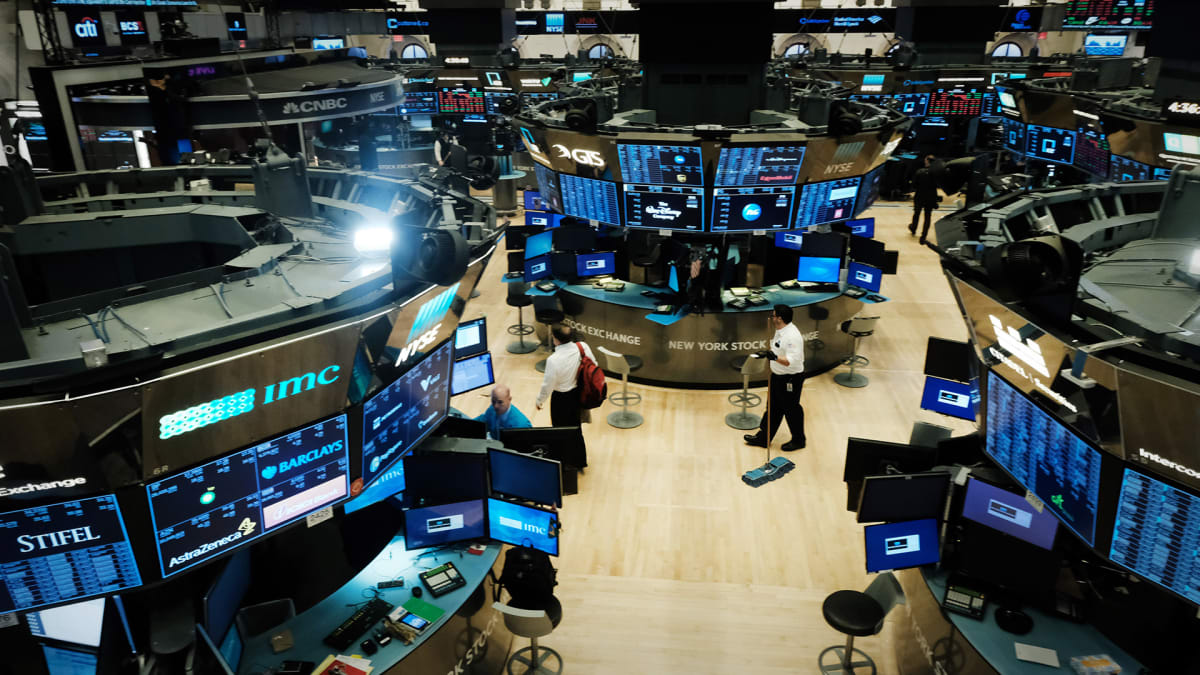
U.S. stocks closed firmly lower for a second consecutive session Thursday, while Treasury bond yields continued their recent declines, as investors adjust for a potential U.S. recession while taking in another round of hawkish comments on rate hikes from a trio of officials from the Federal Reserve.
A twin set of disappointing economic data Wednesday, including weaker-than-expected December retail sales and a slump in manufacturing activity around the New York state region, helped push stocks firmly lower into the close as investors continue to worry that the Fed may overreach in its rate hike path and choke off growth prospects in the world's largest economy.
Microsoft's (MSFT) unveiling of a bigger-than-expected round of job cuts, which will eliminate around 10,000 jobs worldwide, also rattled stocks, which had their biggest single-day decline in nearly a month, while the Fed's 'Beige Book' reading of economic activity showed elevated wage pressures set against muted near-term optimism from contacts around the country.
Comments from Fed officials that followed, including from Cleveland Fed President Loretta Mester, added to that concern, after she told the Associated Press that "I just think we need to keep going" on rate hikes and projected a peak Fed Funds rate that is north of 5%.
That view, echoed by Philadelphia Fed President Patrick Harker and St. Louis Fed president James Bullard in remarks to the media yesterday, challenged moves in the bond market, where a rally in prices continued to push yields lower -- while bets on smaller Fed rate hikes continue to accelerate -- as traders see weaker growth, declining corporate earnings and slowing inflation as signs of an eventual Fed pullback.
Recession worries were also compounded by another downward move in single-family housing starts, which fell 4.1% in November to an annual rate of 828,000, the lowest since May of 2020.
Investors were looking for a firmer reading after the National Association of Homebuilders said yesterday that it's closely-tracked sentiment index improved for the first time in 12 months in January, boosted in part by the ongoing decline in domestic mortgage rates which could help tweak demand. The Mortgage Banker's Association, in fact, said 30-year fixed rates fell to 6.23% last week, down nearly 20 basis points from the prior period and nearly a full percent lower than the late October peak of 7.16%, the highest since 2001.
Benchmark 10-year Treasury note yields slipped another 2 basis points in New York trading to 3.397% in New York trading, the lowest since September, while 2-year notes were pegged at 4.107% and the U.S. dollar index fell 0.1% against its global peers to 102.210..
The CME Group's FedWatch is indicating a 94.3% chance of a 25 basis point rate hike from the Fed on February 1, up from around 76.7% this time last week, with traders expecting the Fed Funds rate to peak at a range of between 4.75% and 5% in the early spring.
On Wall Street, the S&P 500 was marked 30 points lower, or 0.76%, at the close of trading while the Dow Jones Industrial Average fell 252 points. The tech-focused Nasdaq was down 105 points, or 0.96%.
In terms of individual stocks, Netflix (NFLX) shares slipped 1.7% lower as investors prepped for the streaming service giant's highly-anticipated fourth quarter earnings after the closing bell.
Tesla (TSLA) shares fell 1.9% amid reports that it's extending delivery times for Model Y deliveries in Germany after Brandenburg's Economy Minister Joerg Steinbach told a union conference that the carmaker's Berlin factory "has to grow up a bit more".
Procter & Gamble (PG) fell 1.5% after the brands giant posted better-than-expected second quarter revenues, while repeating its near-term profit forecasts, but hinted that higher prices will likely boost full-year sales.
In overseas markets, the the region-wide MSCI ex-Japan index fell 0.3% into the close of trading, while Tokyo's Nikkei 225 fel1 1.44% following last night's sell-off on Wall Street.
Europe's Stoxx 600 closed 1.55% lower in Frankfurt, snapping a six-session winning streak, the longest since November of 2021. London's FTSE 100 was down 1.07%.







